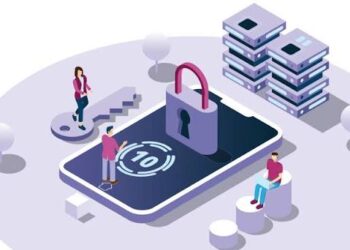Learn how fake antivirus scams trick users, how to spot scareware, and which real antivirus tools you can trust to remove malware and stay protected on how to spot fake antivirus scams 2025

Introduction
In Ghana, we’re more than a little concerned about fake/rogue antivirus. In most tertiary levels across the country, I’ve seen browsers redirected to fake antivirus warnings when students try to access shared Wi-Fi. People keeps complaining about similar cases within this year, which made me dig into how fake antivirus scams work.
Again, another report attributes that a vendor reported a sponsored link that appears to be to one of their products but actually provides a copy of a pretty questionable anti spyware application. Scams of this kind are not common, but they are not good.

What Is a Fake Antivirus?
Fake antivirus software is a fraud, and its developers take advantage of people’s ignorance and anxieties. Sometime ago I saw a pop-up ad on my browser that claimed severe virus infections but when I checked it, the name didn’t match anything in Google Play or App Store reviews. That’s one thing I will advise everyone to be aware of.
How Fake Antivirus Scams Work in recent times
- To terrify customers into purchasing software that is at best ineffective and typically intentionally malicious, it threatens them with severe consequences and damage from malware that doesn’t exist (apart from the fact that the phony antivirus program is malware).
- By installing software that prevents systems from operating correctly, it directly damages them.
- Those victims who do pay are exposed to additional fraud, identity theft, scams, and other forms of attacks.
Signs You’re Dealing With a Fake Antivirus

1.The Pop-Up Stops You From Shutting It Down
One of my friends at my workplace had phone screens froze after a pop-up that refused to close at the moment. They thought they’d try clicking the X, but the pop-up reloaded immediately. That was our first hint it might be fake.
2.It is requesting payment immediately.
Some scams especially in Ghana go straight to the payment plan instead of making the tech support call.
These fake apps often show payment options like mobile money, Airteltigo cash and Telecash Ghana, or even a bank credit card which may persuade with a false sense of trust. But real antivirus vendors don’t really talk about payment via mobile money, telecash, and airteltigo in a pop-up. They always use their website or their official app stores.
NOTE:No trustworthy antivirus software requests money via a pop-up browser notification. Always buy security software straight from the reputable vendor’s website.
3.It Appears Suddenly—When You’re Not Even Looking
Legit and notable antivirus software doesn’t appear out of nowhere and start confusing you with tricks.
Stop if you’re streaming a video on your own phone or laptop, checking your email, or checking your browser and you receive a “infection alert” from software you remember you didn’t install. That is a warning sign you shouldn’t ignore, malicious advertisements from scammers or compromised websites are the source of these pop-up scams. They pose as well-known companies like McAfee, or they make sure to imitate your operating system (such as Windows or macOS).
NOTE: Don’t believe the results if you didn’t start the scan. Close the tab in your browser right away. Nothing should be clicked on the pop-up
4.The software name is unfamiliar to you.
I friend saw ‘ShieldDefender Pro’ advertised on a WhatsApp group during freshers week in early university level. It was using words like ‘Shield’ and ‘Defender’ to make it sound familiar and trusted looking at the name but when I inspected, it wasn’t listed in any reputable antivirus review site.
NOTE:Go to your list of installed programs or apps. If the antivirus in the pop-up isn’t there, it’s not real.
5.You are instructed to download something right now.
“Download this update urgently to remove the virus now!”
- That download? It’s the real infection. Malware, spyware, or ransomware is often embedded in these files. Once you install it, your system is compromised.
- Legitimate antivirus software updates itself automatically or with your permission—usually through its official interface, not a pop-up ad.
NOTE:❌ Never download anything from a pop-up window in your browser. Always update your software using the official website or within the app.
6.The message employs scare tactics or high-pressure language.
Real security software doesn’t sound like a scary narration.
If the message contains phrases like this please act fast:
“Immediate Action must be Required!” “System Files Are At Risk!” “Click Now or Lose Everything!” …it’s trying to scare you into reacting emotionally. And that’s exactly what the scammer wants.
- Authentic antivirus tools are designed to inform not to terrify you. They don’t use blinking icons, countdown timers, or all-caps red alerts. If you’re having a feeling that you’re being yelled at, it’s probably a scam.
How to Proceed If You Believe You Have Been Scammed

Don’t freak out if you’ve already clicked, downloaded, or paid. But move quickly.
1. Make sure to turn off your internet connection.
After doing this, malware’s ability to communicate with external servers is reduced.
2. Do an antivirus scan you can trust:
Make use of software that you truly believe that is authentic such as Bitdefender, Malwarebytes, Mc afee, etc.
3. Disable suspected programs.
Try looking for any newly installed unexpected items.
4. Modify your login credentials.
And try to do different details for financial accounts, email, and banking.
5. Speak with your bank.
To report possible fraud if you get associated with such, contact your bank or credit card company if you input payment information.
Recommended Real Antivirus Solutions
- Windows: Windows Defender, Bitdefender, Kaspersky, Avast, McAfee.
- Mac: Intego, Bitdefender, Norton.
- Mobile: Google Play Protect, Malwarebytes, Lookout, Norton Mobile Security
Best Practices to Stay Safe
Always download from official App Stores
1.Do not download apps from unknown or unofficial websites
2. Only use official app stores such as Google Play Store (Android) or Apple App Store (iOS),these platforms always have measures put in place to detect and remove malicious apps.
3.For apps that do not have an automatic update function, do regular check and update your apps promptly when you receive a notification to do so.
4. This measure will ensure that you will have the most up-to-date protection against cyber threats.
5. Read and confirm the developer’s reputation, number of downloads, and app reviews before downloading their apps. For example: how many star ratings?
6. Always look for a well-known developers where possible.
7.Never open files or email attachments from senders you don’t know much about, click on dubious links, or download files or apps from unidentified sources. Otherwise, you can unintentionally infect your PCs or mobile devices with malware.
FAQs
Q1: What is a fake antivirus scam? A fake antivirus scam is malicious software that pretends to scan your device, pop up fake virus alerts, and persuade you to pay for useless protection.
Q2: How to know if an antivirus is real? Check if it’s listed on official stores, if they have reviews from trusted sites, and comes from well-known vendors.
Q3: Can fake antivirus steal my data? Yes, most fake antivirus apps are actually malware designed to steal your personal information, passwords, or payment details.
Conclusion
Scammers are always confusion, urgency, and fear. They win with such terms. However, you have eliminated their greatest weapon of surprise, now that you are aware of the warning indications.
Wait a while before making a move if anything doesn’t feel quite right.
Do you think I started this? Does this seem off?
And always remember: Real and legit antivirus tools protect you quietly. Fake ones shout, make sure to know how to spot fake antivirus scams 2025
Stay safe out there. Your online habits are just as important as your passwords and PINs,grab more ideas on Virus: How to Detect, Remove, and Stay Safe on both android and ios.—and we’re here to help you protect both.















